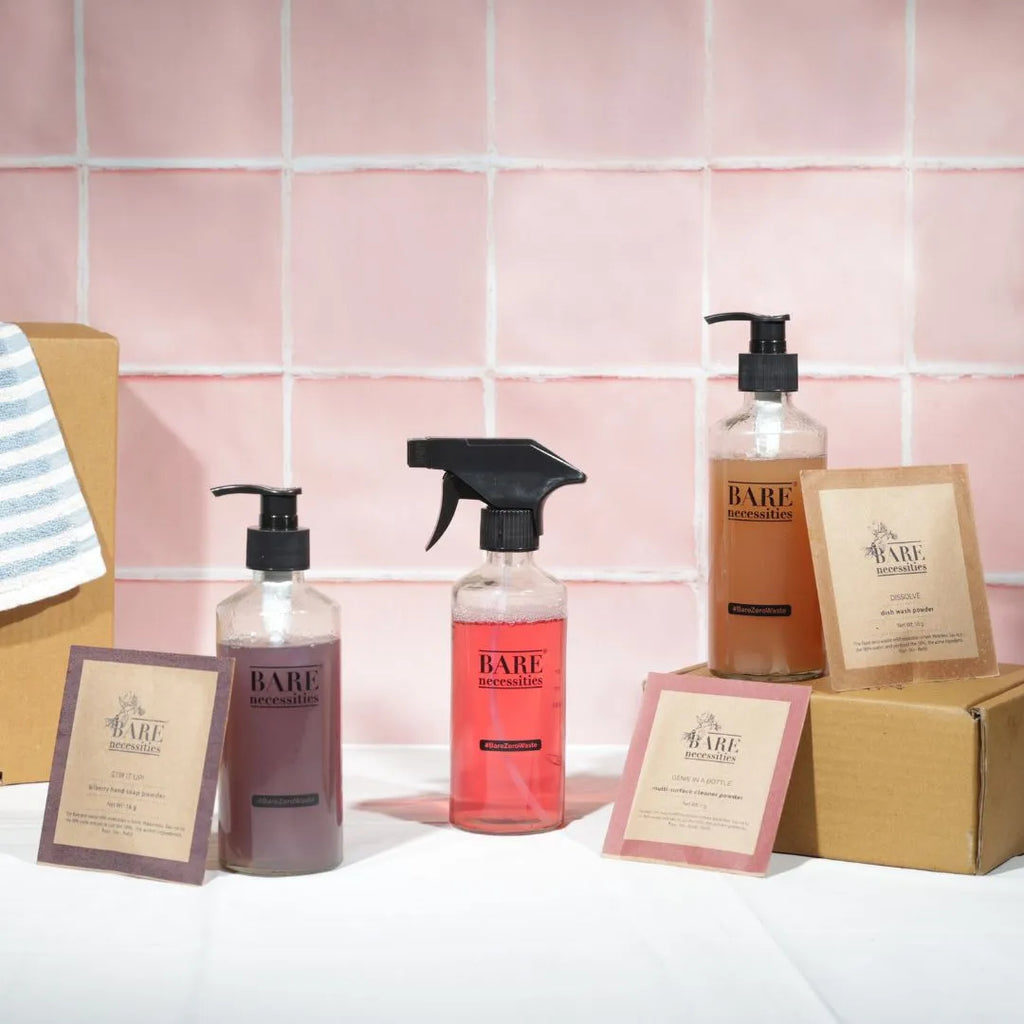Quest for sustainability in everyday products

Take a stroll down an aisle in the supermarket. Neatly arranged bottles embellished with attractive packaging align each of the racks, calling out to you to pick it up. Bottles of shower gels, shampoos and soaps look more vibrant than they ever have before. While conscious consumerism is picking up speed, did you know that we are consuming more personal care and beauty care than we ever have before in history?
To accommodate the increased demand and newer consumption habits, current business models are built to produce everyday items in large volumes. In doing so, producing large quantities of items outweighs sustainable production. Yet at the same time, consumers are looking to make conscious, sustainable choices, which are reflective in their everyday purchases.
And this is where strategic marketing comes into play. Claims such as sustainable, non-toxic and recycled plastic in their packaging, therefore promising a low carbon footprint products have been making the rounds. But in reality, is this actually something that is possible, given the sheer mass of products produced?
These are plenty of reasons for us to collectively rethink our everyday products and therefore the business models. The idea of a powder-to-liquid soap may seem like a simple product concept, which contributes to a sustainable future.
At the outset, a powder-to-liquid soap is extremely simple to use. Its interactive nature as a product, makes it a fun DIY to involve the entire family.
These soaps contain 10% of the active ingredients, which is actually required to make soap. By mixing the active ingredients with water from the tap in your own home, the soap is ready to use. The biggest and most notable advantage of any powder-to-liquid soap is the retail space efficiency it provides along with avoiding the illogical need for transporting water across cities.
While this sounds like it's straight out of a sustainability fever dream, mass produced powder-to-liquids bring with them their own challenges.
A core ingredient used in creating these soaps are surfactants, which is responsible for creating the foam and the characteristic cleaning ability of soaps are mostly sulfates. Made mostly from sulfates, these are potentially toxic to the groundwater and waterways, where these soaps eventually end up.
Similarly, when it comes to packaging, the concentrates are usually packaged in plastic, which are ultimately single use. A famous claim that one might get to frequently hear is about the recyclability of plastic. Although one might recycle plastic, it gets downgraded to a lower quality of plastic, then gets downgraded again and again until eventually actually landing up in landfills, only to be incinerated.
In this regard, it is certainly possible to innovate with biodegradable or compostable packaging to store the soaps. In order to do that, the product itself needs to be earth friendly. It is ultimately a cycle of creating a completely earth friendly product right from ingredients to product to packaging to disposal.
Quite frankly put, the world of marketing has a very loose grasp of what sustainability actually is. In sharing half baked truths and dearth of transparency, results in greenwashing. Owing to which, consumers are falsely lured into thinking they are making green choices, when in reality they are not.
Against this backdrop, smaller companies, which perhaps do not always have the money or marketing muscle, need to take many steps to communicate their sustainable measures. Thereby, making it seem they are just a sustainable company. Whereas the fact of the matter is that, these companies create effective products, which do the job effortlessly, and by the way, happen to be sustainable too.
